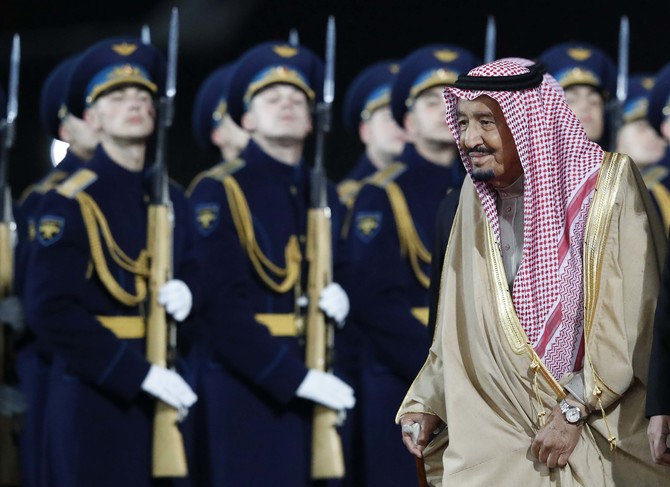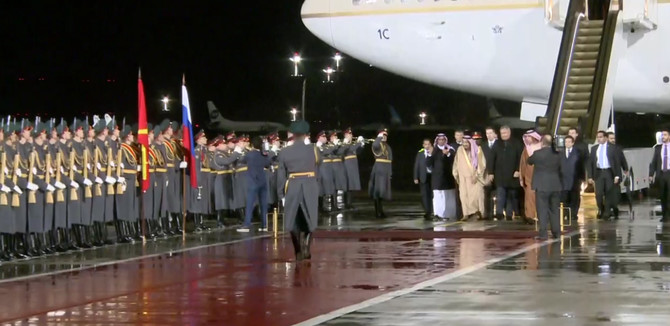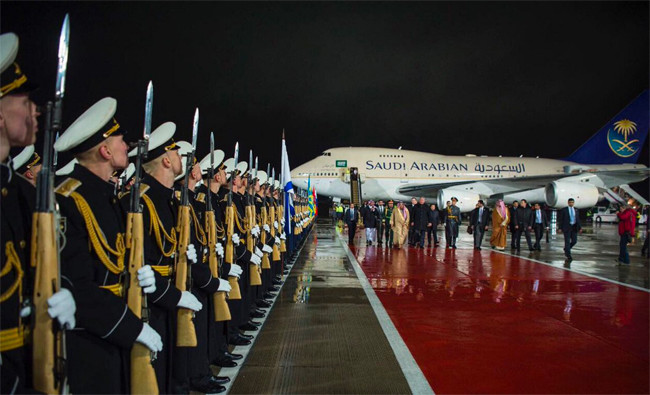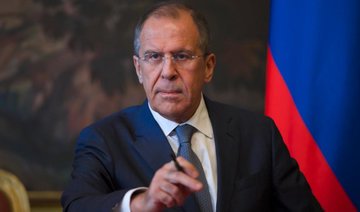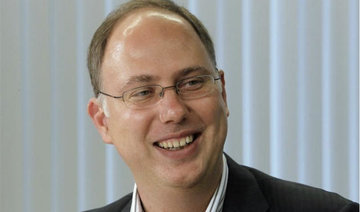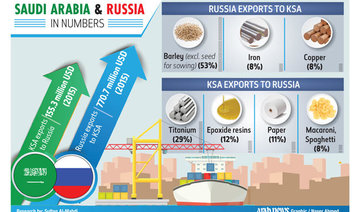MOSCOW: King Salman arrived in Moscow on Wednesday for a historic and unprecedented state visit to Russia, the first by a Saudi monarch in almost a century of diplomatic ties.
The king was greeted at Vnukovo airport by senior Russian officials and a military brass band. He will have talks with the Russian President Vladimir Putin on Thursday and Prime Minister Dmitry Medvedev on Friday.
The two countries will sign investment agreements worth more than $3 billion during the visit, the Russian Energy Minister Alexander Novak said. They include a $1.1 billion deal for the Russian petrochemical company Sibur to build a plant in Saudi Arabia, a $1 billion joint technology investment fund, another $1 billion joint fund to invest in energy projects, and Saudi investment in Russian toll roads, including a new one in Moscow.
King Salman and President Putin are also expected to discuss extending oil production cuts ahead of the OPEC meeting in November.
The king is leading a high-powered delegation of government and private-sector figures. “The potential for economic cooperation between the countries is really unlimited,” Konstantin Dudarev, former Saudi general manager of the Russian oil and gas engineering construction company PJSC Stroytransgaz told Arab News.
“Their economies complement each other, and it is time to gain what was lost during the past years, and to take practical steps to overcome all obstacles to secure a breakthrough in trade and economic relations.”
Ilya Fabrichnikov, head of the foreign affairs group at the Russian Association of Public Relations, said the visit marked a shift in regional and global affairs. “We are witnessing a move from a unipolar world to a more regionalized state of affairs,” he told Arab News.
Anton Mardasov of the Russian International Affairs Council said the two countries were moving to end their “stereotyped perceptions of each other. Taking into account the nature of the Russian economy and the country’s geopolitical position, it is important for Moscow to attract foreign investment and ameliorate the investment climate.
“In this regard, Saudi-Russian business and investment cooperation serves Russian national interests. There are a large number of Muslims in Russia who can benefit from Islamic banking, which is an area of investment for Russia and Saudi Arabia.”
Kirill Dmitriev, head of the Russian Direct Investment Fund, said the two countries would seek areas of synergy and aim to exploit their “unique technologies,” for example in desalination and energy efficiency for air conditioning.
He also highlighted Russia’s largest tech company, Yandex, which specializes in Internet-related services and products. “Yandex is an interesting company for us because it is already present in the Middle East and Turkey, and it has a search engine that beats Google in the Russian market by a large margin,” he said.
Dmitriev’s fund will also look at relevant investments outside Russia and Saudi Arabia, he said.
The Council of Saudi Chambers organized a networking meeting in Moscow on Wednesday for more than 100 Saudi and Russian business leader and chief executives, to coincide with King Salman’s visit.
Council Chairman Ahmed Al-Rajhi said he hoped the meeting would boost commercial cooperation and investment between the two countries.
An increase in meetings between Russia and Saudi Arabia “has become a pressing necessity to activate commercial and investment relations,” he said.
King Salman’s visit will conclude on Saturday.
A turning point in Saudi-Russian relations
A turning point in Saudi-Russian relations
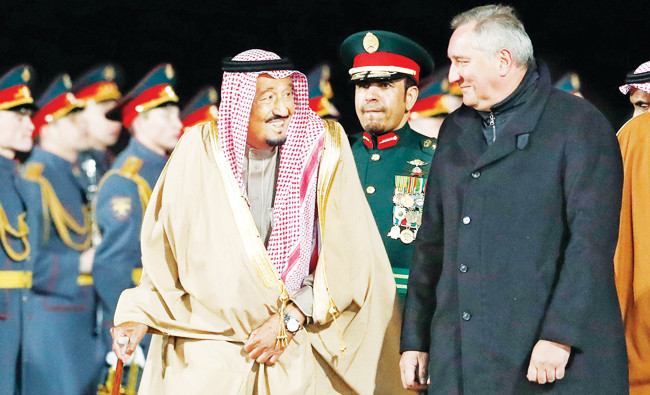
A look back: Eight decades of Saudi-US relations

- From the 1945 FDR-Ibn Saud meeting to Vision 2030, the two countries have built an enduring partnership
- President Donald Trump’s second visit to the Kingdom will underscore the mutual interests in diverse fields
RIYADH: Over the past 80 years, the relationship between Saudi Arabia and the US has evolved into a multifaceted partnership encompassing defense, trade, education, tourism, and more — sustained by connections at every level, from government officials to private citizens.
It is no coincidence that President Donald Trump’s first official overseas trip during his second term is taking him to Saudi Arabia, alongside the UAE and Qatar.

Since 1974, six US presidents have visited the Kingdom, a testament to Saudi Arabia’s enduring influence as a stabilizing force in a volatile region.
“Today, the US-Saudi relationship is stronger than ever, bolstered by interactions at all levels between our two countries, from government officials to everyday citizens,” Michael A. Ratney, the most recent US ambassador to Saudi Arabia, wrote in an oped in Arab News on Sept. 22 last year.
He added: “This strength is palpable in our wide-ranging cooperation — whether in security, commerce, culture or our joint efforts to resolve regional conflicts in places such as Sudan, Yemen and beyond.”
From early cooperation on defense and energy to modern collaboration in education, technology, tourism, and the arts, the bilateral relationship has deepened with time, shaped by regional events, global shifts, and shared interests.

Education has remained a cornerstone, notably through the King Abdullah Scholarship Program, which has sent thousands of Saudi students to the US. American students have also come to Saudi Arabia through the Islamic University in Madinah and exchange initiatives such as the Fulbright program and partnerships like the one between Arizona State University and the Saudi Ministry of Education.
In recent years, Vision 2030 has injected new dynamism into Saudi-US collaboration, opening avenues for knowledge exchange and attracting billions of dollars in mutual investment.

Like the US, Saudi Arabia is a nation of innovation, valuing entrepreneurship and technological progress. Many trace the momentum in relations to Trump’s 2017 visit or Vision 2030. But the foundations were laid decades earlier.
The roots go back to the 1940s, following the unification of the Kingdom by King Abdulaziz Al-Saud — then known in the West as Ibn Saud — who united the tribes of Najd and Hijaz in 1932 to form Saudi Arabia.
On Feb. 14, 1945, as World War II neared its end, President Franklin D. Roosevelt met King Abdulaziz aboard the USS Quincy in Egypt’s Great Bitter Lake, following the Yalta Conference. The meeting marked a historic turning point. Roosevelt sought King Abdulaziz’s counsel on the issue of Jewish refugees from Europe and looked to Saudi Arabia as a key player in shaping the postwar order.
Roosevelt knew that, even as the Second World War was drawing to a close, in the wings a new world order was taking shape — and that Saudi Arabia was a nation that the US needed to befriend. The two leaders developed mutual respect: Roosevelt gifted the King a DC-3 passenger plane — followed by two more — paving the way for the founding of Saudia Airlines.
Roosevelt died two months later, but the “Quincy Meeting” laid the groundwork for a lasting relationship. In 1953, the two nations formalized military ties through the Mutual Defense Assistance Agreement.
In 1957, King Saud became the first Saudi monarch to visit the US, meeting President Dwight D. Eisenhower at Washington National Airport. The visit emphasized the need for lasting solutions to regional challenges and led to a commitment to strengthen the Saudi Armed Forces.

Early cooperation extended to infrastructure, with American architect Minoru Yamasaki designing the Dhahran Civil Aviation Terminal in 1958. Diplomatic visits continued into the 1960s and 1970s, cementing bilateral ties.
In 1966, King Faisal met President Lyndon Johnson during a state visit, followed in 1971 by another official visit, this time with President Richard Nixon.
By 1974, economic ties deepened with the creation of the US-KSA Joint Economic Commission, focused on industrial development, education, technology, and agriculture. That year also saw President Nixon make a historic visit to Saudi Arabia, affirming the growing partnership.
In 1982, Vice President George H. W. Bush visited Riyadh to offer condolences following King Khalid’s death — a gesture underscoring the personal dimension of bilateral relations.

Military cooperation intensified during the Gulf War in 1990–91, when Saudi troops joined American and allied forces in the liberation of Kuwait. The deployment of US troops to Saudi Arabia underlined the Kingdom’s strategic role in regional defense.
In 2002, the Saudi-US Strategic Dialogue was launched during King Abdullah’s visit to President George W. Bush’s ranch in Crawford, Texas. It aimed to enhance cooperation in counterterrorism, energy, education, and economic affairs.
That spirit of collaboration continued in 2005 with the launch of the King Abdullah Scholarship Program, designed to invest in Saudi Arabia’s human capital. The pilot phase sent over 9,000 Saudi students to study in the US — a number that has since multiplied.
High-level engagements carried on with First Lady Laura Bush’s visit in 2007, followed by President Barack Obama’s first presidential trip to Saudi Arabia in 2009.

In 2012, the GCC-US Strategic Forum was established, with then-Secretary of State Hillary Clinton attending the inaugural ministerial meeting in Riyadh — elevating the Gulf Cooperation Council’s role in US regional strategy.
The partnership took another leap in 2017 when President Trump visited Riyadh during his first term. His visit featured three high-profile summits: the Arab Islamic American Summit, the US-Saudi Bilateral Summit, and the US-GCC Cooperation Council Summit. The meetings focused on expanding military and commercial ties.
As the Kingdom reshapes its economy and global engagement through Vision 2030, US partnerships remain integral in areas like energy transition, clean tech and digital transformation.
President Trump’s return visit on Monday, his first official trip abroad in his second term, is expected to reinforce those efforts — focusing on investment, innovation and renewed people-to-people ties.
From the historic 1945 meeting between Roosevelt and King Abdulaziz to the new era of strategic cooperation, Saudi-US ties have weathered wars, economic shifts, and political change. As both nations look ahead, their partnership remains a vital anchor of global stability and opportunity.

Etidal, Telegram remove 16m extremist content

- Almost 177 million pieces of extremist material have been removed since the collaboration began in February 2022
RIYADH: The Global Center for Combating Extremist Ideology, in cooperation with messaging platform Telegram, removed more than 16 million pieces of extremist material in the first quarter of 2025.
Additionally, 1,408 channels used by extremist groups were shut down as part of joint efforts to counter extremist propaganda, the Saudi Press Agency reported on Sunday.
The center, known as Etidal and based in Riyadh, has been working with Telegram to prevent and counter terrorism and violent extremism by monitoring Arabic language online content.
The removed propaganda included PDFs, video clips and audio recordings, the SPA reported.
Almost 177 million pieces of extremist material have been removed since the collaboration began in February 2022, and 16,201 channels shut down by the end of March 2025.
The ongoing partnership reflects a strong commitment to combating extremist rhetoric and promoting a safer digital environment, the SPA reported.
Saudi Arabia and Bahrain sign agreement to complete medical city project

- Project marks major collaboration between two countries in field of medical education and healthcare infrastructure
MANAMA: Bahrain’s King Hamad bin Isa Al-Khalifa met with Saudi Arabia’s Minister of Education, Yousef bin Abdullah Al-Bunyan, at Al-Sakhir Palace on Sunday during the latter’s visit to sign an agreement for the completion of King Abdullah bin Abdulaziz Medical City.
The project, being carried out by the Arabian Gulf University, marks a major collaboration between the two countries in the field of medical education and healthcare infrastructure, the Saudi Press Agency reported.
During the meeting, Al-Bunyan conveyed greetings from Saudi Arabia’s King Salman and Crown Prince Mohammed bin Salman, along with their wishes for Bahrain’s continued development, SPA added.
He also underlined the importance Saudi Arabia places on strengthening its longstanding relationship with Bahrain, particularly in the education sector.
King Hamad welcomed the minister and reciprocated the well-wishes, reaffirming Bahrain’s appreciation for the strong ties between the two nations.
He expressed satisfaction with the progress of joint projects, particularly King Abdullah Medical City, which he said reflected the depth of cooperation between Bahrain and Saudi Arabia.
Riyadh community reclaims power of writing

- Kitabah initiative for Arabic writers carves out a space for creativity
RIYADH: What would happen if you wrote every day for 100 days? In Riyadh, a growing Arabic writing community has taken on the challenge, inviting writers of all levels to rediscover the joy of writing one day at a time.
The “100 Days of Writing” initiative offers a space for reflection, consistency and expression, far from the pressures of social media.
“Writing is an essential tool for anyone who wants to think,” Mohammad Aldhabaa, founder of the community, told Arab news.
He said that writing can serve as a form of meditation and healing, helping individuals process emotions and better understand themselves.
“There are many things you can do with writing on a personal level, to reflect, to deconstruct identity, and to make sense of experiences, he said.

There are many things you can do with writing on a personal level, to reflect, to deconstruct identity, and to make sense of experiences.
Mohammad Aldhabaa, Kitabah founder
While the community grew, Aldhabaa saw firsthand the challenges Arab writers face online: “We don’t have the infrastructure to allow writers in Arabic to write and publish their work and to reach their audience using modern digital tools,” Aldhabaa explained.
Many writers are forced to rely on fragmented, English-oriented services like newsletter platforms and generic website builders. It is hard to expect consistent, high-quality content in Arabic without a proper system that incentivizes writers, he said.
Out of this need for better infrastructure, the community built its own solution: Kitabah, a publishing platform designed specifically for Arabic writers.
The platform allows users to publish work, create personal websites, and in future phases, monetize their writing.
Kitabah integrates social features to help writers grow their audience without having to independently market their work, similar to Substack or Medium which are useful for writers working in English.
“We didn’t want to create separated islands where each writer builds a blog and struggles to bring in traffic,” Aldhabaa said. “Everything is distributed through the Kitabah feed, and also you have your own website.”
He explained that writers can publish, connect their work to a newsletter, and link their personal site across social media. “There’s a traffic engine behind it, so writers don’t have to do all the heavy lifting.”
Initiatives like this can help shape the Kingdom’s literary and cultural landscape, he said, by empowering more writers to tell locally rooted stories.
“That is very important and crucial, playing into the soft power of Saudi Arabia the ability to have way more writers and creators be able to focus on telling stories about the communities we grew up in, the stories we come from. Because there is something that is very valuable and has very impactful results,” he said.
The community attracts experienced writers and absolute beginners. “We don’t want it to be only seasoned writers who already have a certain level of achievement because the idea of the community is to allow people to try and to learn, and not to create a status-based community.”
Hanen Shahin, a member of the community, said: “The writing community is an alternative environment to the forums we used to write in years ago. Social media came along and made it a competitive space driven by numbers and algorithms, an unhealthy environment for emerging writers, and sometimes even a damaging one.”
Shahin said that writing communities, by contrast, offer the guidance and perspective many writers need.
“You’re not just writing consistently but doing so while receiving feedback from people with refined taste and diverse backgrounds, which gives you a broader view of your work.”
Lana Elsafadi, another member, said: “Writing has helped me know myself better and get better at sorting out my feelings clearly. I feel really good when I can make a helpful comment that shows a deep idea or gives good advice, whether it’s about personal things or work.”
One hundred days may seem a big challenge, but for many writers in Riyadh, it is just the beginning.
Saudi crown prince, Al-Sharaa discuss Syria’s stability and security

- Al-Sharaa thanked Saudi Arabia for its “continued support,” highlighting the Kingdom’s role in strengthening Syria’s territorial integrity and stability
RIYADH: Saudi Crown Prince Mohammed bin Salman and Syria’s President Ahmed Al-Sharaa held a phone call on Sunday, the Saudi Press Agency reported.
During the call, the crown prince and Al-Sharaa discussed the latest developments in the Syrian Arab Republic, and reviewed all efforts to support its security and stability, SPA added.
According to a Syrian Presidency statement, Prince Mohammed “reiterated the Kingdom’s commitment to supporting Syria’s security and stability, encouraging political solutions that preserve the country’s unity, and contributing to its reconstruction.”
He also emphasized Saudi Arabia’s keenness to expand economic and investment ties with Syria in the period ahead, the statement added.
Al-Sharaa thanked Saudi Arabia for its “continued support,” highlighting the Kingdom’s role in strengthening Syria’s territorial integrity and stability.


